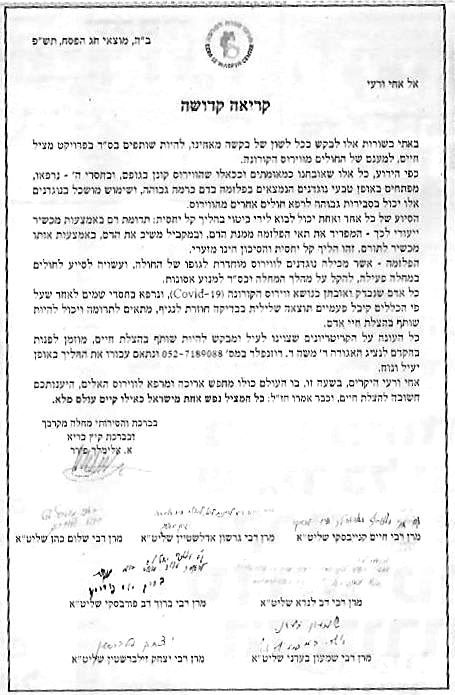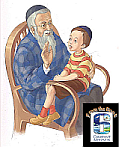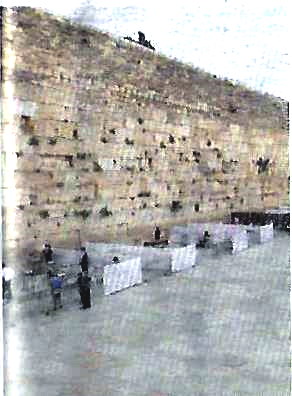  |
|
| |||||
This Google Custom Search looks only in this website. In Israel and America: Lifesaving Blood Plasma Donations
In Israel and America major efforts are underway in the religious community to encourage blood plasma donations from those who have recovered from the Covid-19 illness.
The current corona epidemic has caused many anti-semitic sentiments to be expressed publicly, particularly in Israel and in the US.
In the US the current crisis spawned the usual negativity aimed at our community, presented by writers who cherry picked instances of individuals' irresponsible actions and portrayed them as characteristic of chareidi attitudes and actions, painting our community in ugly colors with the broadest of brushes.
Where ever one turns these days, the world is unstable and behaving in unexpected ways.
US society is polarized in extreme ways. There is almost no cooperation on any issue of significance aside from giving away money.
An excerpt from Koros Boteinu Arozim written by HaRav Shmuel Carlebach, zt"l. This was first published twenty years ago, in 2000.
Chazal (Bereishis Rabbah 60:16) revealed to us the three unique characteristics of Soroh Imeinu's tent: a lamp was lit in it constantly from erev Shabbos to erev Shabbos, a cloud hovered over the doorway, and there was always a blessing in the dough she kneaded. Those special features ceased when she passed away and only returned to the home when Rivka married Yitzchok.
We were not told this just to let us know some information about Soroh and Rivka. We must make efforts to bring such brochos into our own tents as well. We must first reflect on what these brochos mean, what they show us, and how can we attain them and reach that same brilliance, that same brocho and kedusha. [Here we discuss the first of these traits.]
The more we ponder this short saying of Chazal's the more wonders we see in avodas Hashem and in the way a Jewish home should be built.
click here
The Kosel as it was reopened this week
From Our Archives
Two Opposites That Cannot Dwell Together In One Place
by A. Weiss
Seven hundred years have passed since Aba Mori Hayarchi of Lunil in southern France turned to the gedolei hador with the request that they join his battle against the tendency of many worthy Jews from Provence towards secular studies. Some of his contemporaries had become convinced of the possibility of combining the study of foreign wisdoms and philosophies with Torah study. The gedolim considered this approach a real danger for the continuation of Torah studies and fought it tooth and nail.
France, the seat of Torah in the time of the Rishonim for several centuries, was also the location where the sitra achra sought to attract young talmidei chachomim to delve in secular studies, arguing that it was possible to combine them legitimately with Torah studies.
The objections of rabbonim such as Aba Mori had wide repercussions. He turned to the godol hador of French and German Jewry, the Rosh, who had been exiled to Spain because of persecutions in Germany. The Rosh, in his reply, suggested that a "meeting of gedolei Torah" be convened to discuss ways of fighting this phenomenon. In 5065 (1305) a cheirem was indeed pronounced in Barcelona, home of the Rashbo, against anyone who occupied himself with Greek wisdom before the age of 25. The Rosh was one of the signatories to this cheirem.
We Have Been Killed For You All Day
by Yisroel Spiegel
Just for Being a Jew
Something moved in the hearts of many Jews here and across the world, upon hearing about the last words of Daniel Pearl Hy"d, the American journalist murdered by terrorists in Pakistan, who declared himself to be a Jew, born of Jewish parents.
Daniel Pearl was no conqueror of territories, nor was he a settler. Neither did he belong to any extremist Jewish national group. In fact, he was far more American than Jewish, having realized the dream of many of the Jewish refugees who made their way over the years to the American melting pot, where ethnic identity is blurred and becomes submerged among the unaffiliated masses. Yet Daniel Pearl was executed in the most barbarous manner, not only as a Jew but because he was a Jew.
His Pakistani terrorist murderers have no particular reason for hating Jews, even allowing for the war that they are currently pursuing, or are being engaged in. If they have complaints, if they feel thwarted or bitter, or if they crave vengeance, their only address should be the Americans, their mortal enemies, who have resolved to fight them until they are utterly vanquished. Yet when they kidnap a journalist who writes not for a Jewish paper but for as well-known and prestigious an American paper as The Wall Street Journal, that inflames their passion for striking at America's vast economic strength, they murder that journalist because he is a Jew.
Pan-Arab propaganda in general and Palestinian propaganda in particular have succeeded in legitimizing the murder of Jewish soldiers and settlers (which is just one step away from legitimizing the murder of Jewish civilians anywhere in the country) in the eyes of the world. It is impossible to ignore the support that they get from Israeli leftists, the most extreme of whom are not even discouraged from expressing themselves in terms that justify these diabolical murders, but Daniel Pearl had nothing to do with any of this.
EARLIER EDITORIALS
A Mission to Spread
Daas Torah
Looking for the
Best in Yiddishkeit
The Immorality
of Palestinian Combatants and Noncombatants
|
|||||




.jpg)


